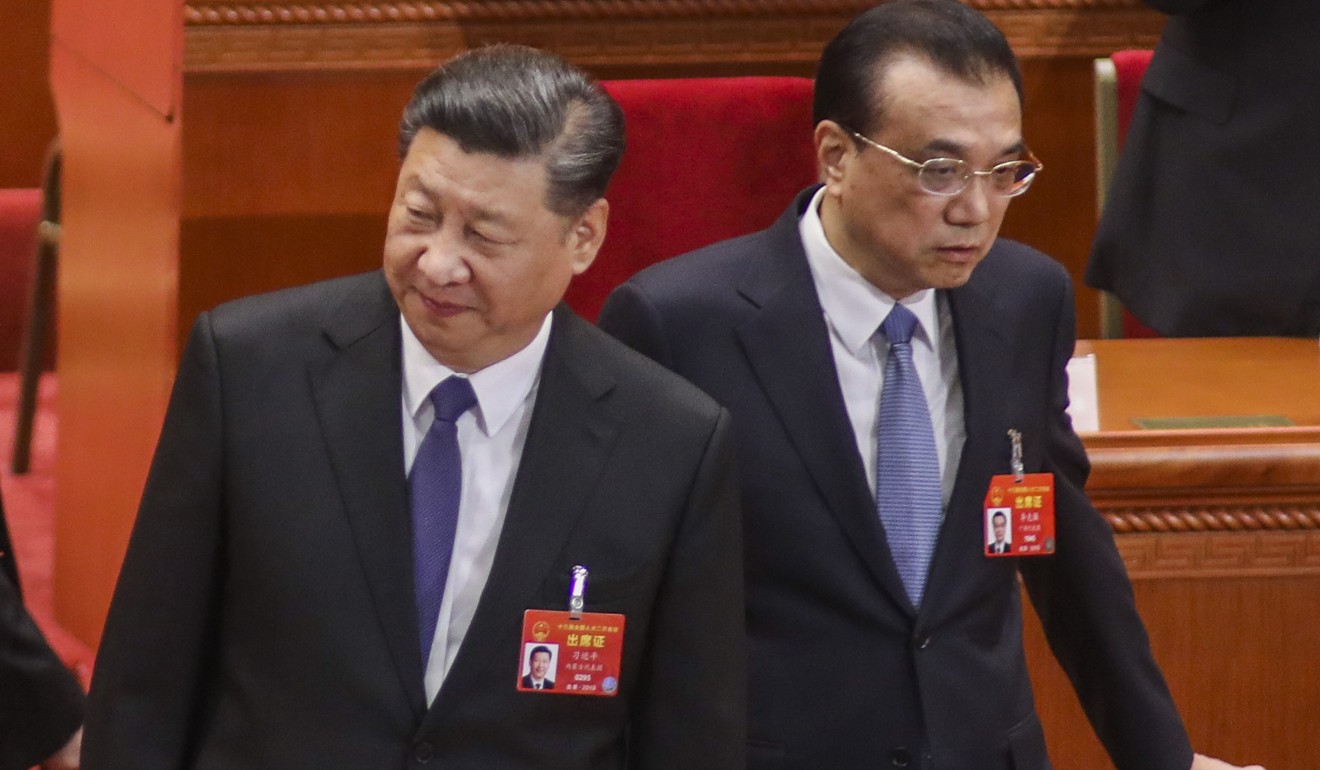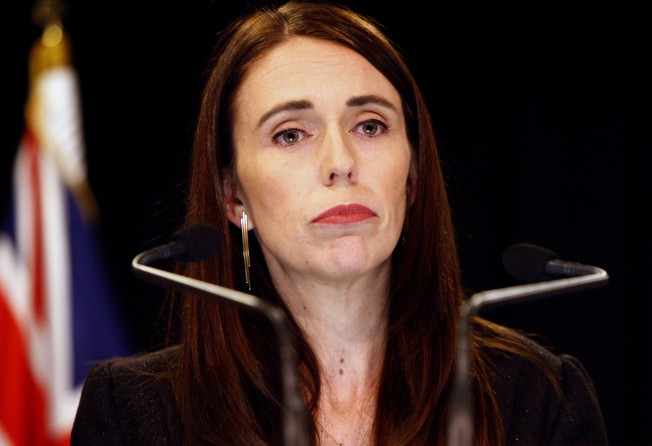
Trade and Xinjiang on the agenda for New Zealand leader Jacinda Ardern in China
- Prime minister will meet President Xi Jinping and Premier Li Keqiang as she looks to repair rough patches in the relationship – especially over Huawei
- An upgrade to the nations’ free-trade deal will also be discussed, along with combating climate change

New Zealand Prime Minister Jacinda Ardern begins her first official visit to China on Sunday as she seeks to smooth ties with the country’s largest trading partner.
She said the trip – which has been shortened to two days due to the recent Christchurch terrorist attack – would focus on economic relations, but will also touch on more sensitive issues like Wellington’s stance on 5G and cybersecurity, and Beijing’s treatment of Uygurs in Xinjiang.
“This is an important visit. New Zealand places a high priority on our relationship with China,” Ardern told reporters earlier in the week. “Our businesses value the relationships they have and I do look forward to our ongoing engagement.”
Ardern will meet both President Xi Jinping and Premier Li Keqiang in Beijing on Monday.
The agenda for the trip will include updating the two nations’ bilateral free-trade deal, along with “protecting and promoting a rules-based international trading system”, and combating climate change, Ardern said.
She will also formally open the country’s new embassy in Beijing during the visit – her first to China since she was elected prime minister in late 2017.

China is New Zealand’s biggest trading partner, and bilateral trade stood at NZ$27 billion (US$18.4 billion) last year, according to the New Zealand foreign ministry.
Ardern will have lunch with Li and discuss trade matters, including increasing New Zealand’s exports of forestry and agricultural products. She told reporters on Friday that on trade, she had already had “quite specific discussions with Li in the past and that may happen again”.
Those trade discussions are expected to continue when Trade Minister David Parker visits China in April, The New Zealand Herald reported.
Xinjiang concerns
Ardern cut back her trip to China in the wake of a national tragedy in Christchurch on March 15, when a gunman killed 50 people in shootings at two mosques. Since the terror attacks, Ardern has made ill treatment of Muslims and other minority groups an important part of her nation’s foreign policy position.
Activists and watchdog groups, including Washington-based Human Rights Watch, have called on Ardern to raise concerns with the Chinese government during her visit. The prime minister on Friday said she would reassert New Zealand’s concerns over China’s treatment of the Uygur Muslim minority while she was in Beijing.
Last year, Ardern raised the issue of “re-education camps” in Xinjiang, along with other human rights concerns, when she met Guangdong party secretary Li Xi in September.
China has faced widespread international criticism for the mass internment camps in the western Xinjiang region that target suspected “extremist” Uygurs, a predominantly Muslim religious and ethnic minority. Beijing has called the facilities “vocational training centres”.
Jason Young, director of the New Zealand Contemporary China Research Centre at Victoria University of Wellington, said in the wake of the mosque shootings, Ardern had “made very clear statements of a blanket rejection of efforts to demonise particular communities, or to target people as being terrorists”.
Fighting religious discrimination had become a focus of the prime minister’s engagement with world leaders since the attacks, Young said.
Ardern told Donald Trump to extend “sympathy and love for all Muslim communities” when the US president asked what support his country could offer New Zealand in the aftermath of the attacks.
Belt and road scheme
Meanwhile, Beijing is expected to seek greater cooperation on its global infrastructure and investment strategy, though Wellington’s interest may be limited to specific areas.
In 2017, New Zealand signed a non-binding memorandum of arrangement on the “Belt and Road Initiative” for the two countries to establish what project areas they would cooperate in.
While concrete details may not be discussed during Ardern’s visit, it will likely pave the way for new projects to be announced when New Zealand’s trade minister attends the belt and road summit in Beijing in late April, Young said.
He said agreements between China and New Zealand would likely focus on trade facilitation and climate change cooperation. “These are the natural areas for New Zealand and China to work together, and I couldn’t imagine something like infrastructure – it doesn’t seem to fit,” Young said.
Huawei tensions
The New Zealand prime minister would also be looking to repair rough patches in the relationship – in particular moves by its intelligence community to block the use of Huawei last year, according to Shi Yinhong, a professor of international relations at Renmin University.
New Zealand is a member of the Five Eyes intelligence alliance, along with the United States, Australia, Britain and Canada. The US has pressured allies to ban Huawei on security grounds, which the US and Australia did last year.
Bilateral relations between China and New Zealand took a hit when the country’s intelligence services rejected a request by local telecoms company Spark to use Huawei equipment last year, citing security concerns. But Ardern clarified in February that Huawei was never out of the running from the country’s future 5G network.
The US would be closely monitoring any policy changes from New Zealand, Shi said.
“If New Zealand were to greatly change its position towards Huawei, Washington would surely exert pressure on Wellington,” Shi said. “New Zealand will likely ease its strict policies towards Huawei, but I don’t think that it will change very much on this issue. Pressure could be reduced, but not eliminated, so pressure by Washington might not be necessary.”